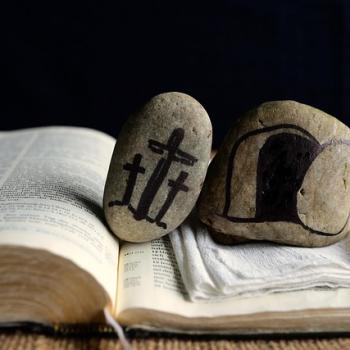
On October 31st President Biden issued an official proclamation designating November as National Adoption Month. The concept is neither modern nor an American creation. Forms of the practice appear throughout history, addressed in the Code of Hammurabi and in Rome’s Codex Justinianus. Is the practice biblical though?
A True Story
Assuring a nurturing, loving environment for every child seems a goal every Christian could get behind. But, surprisingly, pushback from believers can come when birth parents consider the option of adoption.
Consider this true story from my years practicing as an adoption attorney. One of my cases involved an unmarried couple in their early 20s facing an unplanned pregnancy. Each recognized they could not raise a child in their present circumstances. Dealing with their own demons already overwhelmed them. The birth father struggled with alcohol addiction, recently receiving his second DUI. Sentenced to house arrest, he could only leave home for work. The birth mother grew up in a dysfunctional home and had been undergoing counseling for years to deal with the scars inflicted on her by that upbringing.
After thoroughly discussing the situation, the young couple concluded placing their child in a stable two-parent Christian home for adoption would be best for all concerned, particularly their innocent child. And what reaction did they receive from the young man’s mother, a staunch Christian? She chastised her son’s decision as being unbiblical. Adoption meant simply abandoning a child. Despite the emotional turmoil and family disharmony resulting, the young man stood his ground and proceeded to place his child with a sweet Christian couple who had struggled with infertility.
Does the Bible Condemn Adoption
The Bible does not support the conclusion of adoption being an unbiblical practice. One of the most familiar and endearing Old Testament stories concerns adoption even if the text fails to contain that specific word. And God clearly intended an adoption to occur.
A Familiar Story
Exodus, the second book of the Bible, offers the story of Moses and the events following his birth. Hebrew baby boys faced dangerous times. Pharaoh exhibited murderous intentions towards them, so Moses’ life hung in the balance. To save her son, Moses’ mother placed him in a papyrus basket coated in tar and pitch and placed him among the reeds on the bank of the Nile.
Pharaoh’s daughter came to the spot to bathe, saw the basket, and instructed it be brought to her. Despite recognizing the basket contained a Hebrew baby boy, under a death sentence from her own father, arranged care for the infant. Ultimately, she took Moses “as her own” and gave him the name Moses. The essence of adoption is taking in one to be a part of your family.” And Moses went on to do great things for his people, leading them out of slavery in Egypt as directed by God and according to His plan from the beginning.
How can one read this story and conclude the Bible gives adoption a thumbs down? Even though Moses’ parents were alive, God called on them to place their child with another to save Moses’ life and to fulfill God’s ultimate plan. God did not view Moses’ biological parents as having abandoned their child.

But Wait—There’s More
Moses isn’t the only Biblical character to be adopted. Who could forget the inspiring story of Queen Esther saving her people from the evil plan Haman set into motion?
Prior to becoming queen, Esther was a Jewish orphan named Hadassah. Her cousin, Mordecai, raised her as his own daughter when her parents died. Although not expressly characterized as such in the biblical text, Mordecai completed a relative adoption. Close to Hadassah, he wisely counseled her on how to interact with the king to save the Jews, and their people. Again, adoption figured prominently in God’s plan.

What About The New Testament Though?
The stories of Moses and Esther, of course, are found in the Old Testament. But how does the New Testament view the concept of adoption?
Joseph, the husband of Jesus’ mother Mary, effectively adopted Jesus. Although Joseph, did not biologically father Jesus, He served as Jesus’ earthly father, helping Mary raise Him. Joseph taught Jesus carpentry skills and provided for his physical needs. This situation provides an example of a stepparent adoption. If Joseph adopted Jesus, can the practice be unbiblical?
Believers Are All Adopted
Ephesians weighs in even more positively about adoption when it indicates ALL Christians have been adopted into God’s family. Verse 1:5a in that book tells us: “God decided in advance to adopt us into his own family by bringing us to himself through Jesus Christ.” (NLT) The verse paints adoption as an expression of love to create a family, the family of God, via the ultimate act of love by Jesus.

What’s The Takeaway?
God uses the concept of adoption throughout the Bible to accomplish His plans—saving individuals, saving the Jews, and creating His loving family. Although a positive concept, that, of course, does not mean adoption is the right choice in every situation today. Adoption does, however, offer a valid and biblical option for which birth parents should not be condemned for considering.
God is a God of love. He wanted us all to be a part of His loving family by accepting Christ. As part of His family, shouldn’t we support actions that show love and provide love? All children need love and the chance to hear about God’s love. Adoptive placement in a Christian home can be a loving solution. As God’s family members, let’s support this biblical option whenever possible through our affirmation, prayers, and even physical gestures to help adoptive families. This support should be continuous, not just during November, National Adoption Month.


















